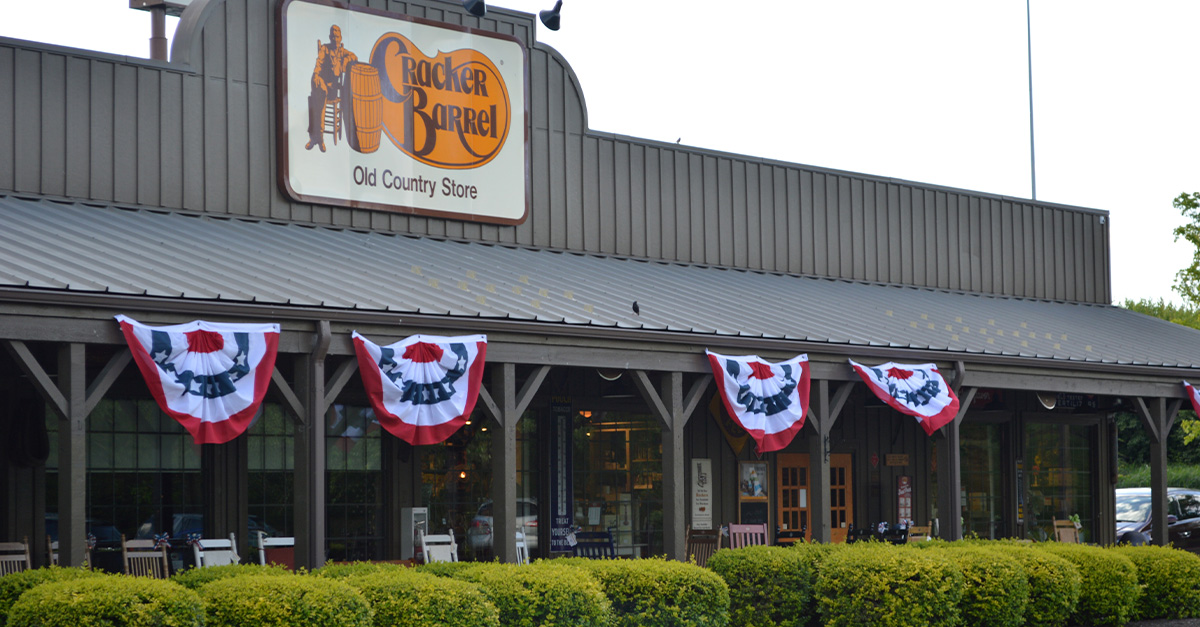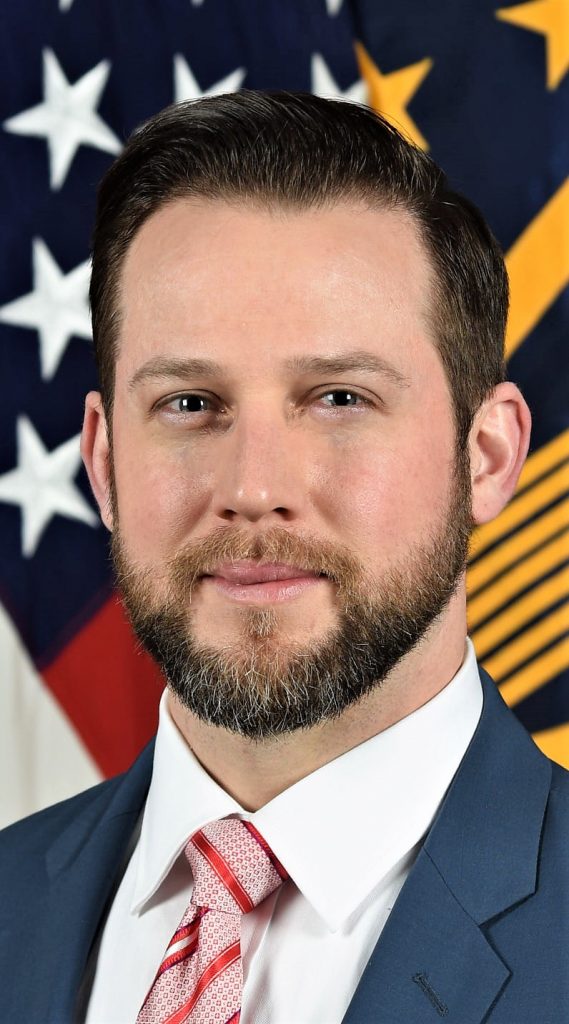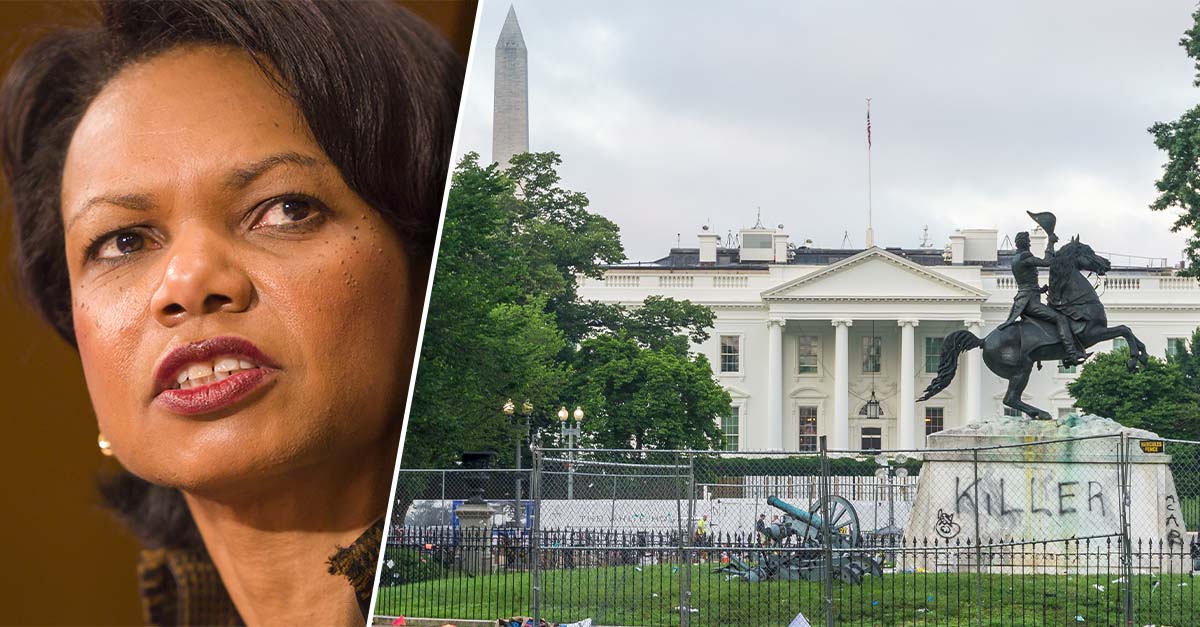


Get a free copy of Parental Rights & Education when you subscribe to our newsletter!

“I want the Gospel to go forth to folks eating chicken-and-dumplings and to folks eating vegan miracle meat for $20 a pound. But I refuse to chastise Christians who won’t bow the knee to the cultural Baals of our time and adopt a new orthodoxy on race or gender roles, etc., just because CNN tells me I should.”
–WILLIAM WOLFE
“Brothers and sisters, think of what you were when you were called. Not many of you were wise by human standards; not many were influential; not many were of noble birth. But God chose the foolish things of the world to shame the wise; God chose the weak things of the world to shame the strong.”
–1 Corinthians 1:26-27
Now, as a husband and a father, it’s been a joy to introduce my family to the same experience. And even though I am in my 30s, I still think stopping at a Cracker Barrel is one of the best parts of taking a long trip. The Sunday “Homestyle Fried Chicken” is just as good as it ever was; even if, somehow, I’ve gotten worse at the “jumping peg game” (here’s looking at you, my fellow ignoramuses).
Personal nostalgia aside, Cracker Barrel is undeniably a symbolic feature of the American landscape. It represents traditional values, a love for kin and country, and an appreciation of the simple, rural lifestyle. The Sunday lunch seats are packed with people who just got up from a pew in a nearby local church. When you think Cracker Barrel, you think hand-picked apples in your grandma’s backyard, you don’t think the bright lights of the Big Apple. In other words, Cracker Barrel represents the average, lower-to-middle class American way of life. Unpretentious. Unassuming. Unapologetically appreciative of our country. It’s about the furthest thing from “elite” this side of a Waffle House.
But for some “elite” evangelical pundits, that’s not necessarily a good thing. In fact, the association between Cracker Barrel, conservatism, and by extension, Christianity is apparently something worth highlighting as a point of criticism.
In a recent video shared by Woke Preacher Clips (a Twitter account I highly encourage following), Phil Vischer engages in a two-minute speculation-session on the connection between the political affiliation of counties with Cracker Barrels versus areas with Whole Foods and the Christian faith.
Phil Vischer is the creator of “Veggie Tales,” the Christian kids cartoon series featuring the beloved Bob the Tomato and Larry the Cucumber. Can a squash make you smile? Well, for me, not so much anymore. Because these days, Vischer is using his media platforms to advance a significantly more left-leaning “woke Christian” agenda. It’s a lot less “Larry is secretly Larry-Boy” and a whole lot more “Christians are secretly white supremacists,” a lot less “Oh where is my hairbrush?” and a lot more “Oh where are the reparations?”
Regardless of what you think about the substance of Vischer’s increased advocacy, I do think it’s fair to say that Vischer fits the description of a certain group of Christians who have been described as “elite evangelicals.”
The elite evangelical, according to John Ehrett at The American Reformer, “largely eschews the ‘culture war’ language of Moral Majority forerunners like Jerry Falwell Sr.” And this type of Christian, this elite evangelical, can’t help but wonder if maybe, just maybe, the rest of us knuckle-dragging fundamentalists are as backwards as the New York Times really thinks we are.
Ehrett goes on to explain that “this nagging sense that we’re really the bad guys, has been internalized — whether overtly or implicitly. One might call this condition of latent discomfort, which tends to manifest as an immediate tendency to distinguish oneself from one’s less enlightened evangelical peers when pressed, the embarrassment reflex.”
Apparently, for Vischer, it seems that one of the best ways to distinguish yourself from your less enlightened evangelical third-cousins is to figure out if you’re a Cracker Barrel Christian or a Whole Foodie.
In the clip, Vischer repeats this statistic he has heard about the political leanings of the geographical areas around these two restaurants. It’s the fact that, when it comes to political representation, and specifically presidential voting, approximately 8 out of 10 counties with a Whole Foods elect Democrats, while about 7 out of 10 counties with a Cracker Barrel go for Republicans. Political analyst Dave Wasserman breaks it down like this: “Biden won the presidency winning 85% of counties with a Whole Foods and 32% of counties with a Cracker Barrel — the widest gap ever.”
What’s Vischer’s point in bringing this up? He goes on to ask: “…because Christianity in America has become so closely aligned with Conservative values…which came first? The conservativism or the rejection of new ideas or going to Whole Foods? And how long has Christianity been Cracker Barrel and not Whole Foods? And which came first: the Cracker Barrel or the Christianity?”
There it is. For someone like Vischer, it’s the Whole Food Elite Evangelicals versus the Cracker Barrel Christians. And the subtext? What’s the matter with those backwards, porch-rocking rubes? If they just were willing to pay for $15 Whole Foods’ sushi like me, wouldn’t the country…wouldn’t Christianity…be better off? (Obviously that’s somewhat tongue-in-cheek, but I trust you get my point.)
What exactly is the substance of this critique? What’s the cause of the embarrassment reflex? It’s the fact that Cracker Barrel Christians, by and large, have refused to adopt the new, progressive views on politics and culture, particularly on the issue of race.
In a recent blog, Carl Trueman addressed this attitude, this ethos that is represented in the Cracker Barrel Christian vs. Elite Evangelical divide. He notes, rightly, not the backwards nature of Cracker Barrel Christians, but rather the “Failure of Evangelical Elites.” He accurately points out that:
“…leading anti-racist Christians operate within parameters set by cultural progressives. Police actions in 2018 accounted for the deaths of fewer than three hundred African Americans, while in the same year abortions of African-American babies accounted for more than 117,000 of the same. One would think this extreme difference (390 to one) would make abortion the centerpiece of Christian critiques of racism. But abortion was remarkably unremarked upon in the myriad op-eds and blog posts about George Floyd and critical race theory that dominated establishment Christian websites in 2020. That is not surprising: Condemning abortion would not have been to the taste of the cultured despisers.”
And that’s where the rubber hits the road. Where the chicken hits the fryer. Where the rocking chair really stops. You see, commentators like Vischer are operating within the parameters set by cultural progressives. They are like fish in water — they don’t even know they are wet. So they look at us, breathing clean air on dry land, and think, “what’s wrong with those people?”
Thus, they see “conservative Christians” — the type that live near a Cracker Barrel and actually eat there too — not as those simply trying to maintain a faithful, biblical ethic in an increasingly secular and maddening world, but rather as “change-resistant” fundamentalists who refuse to get with the times, march in a BLM rally, soften their stance on abortion, and get in line at the nearest Whole Foods.
Not me. I gladly throw my hat in the dusty ring with the Cracker Barrel Christians every day of the week — and especially on Sunday (for the buttermilk-battered fried chicken, of course). But I am more than happy to break bread with the Whole Food Christians too — as long as they are willing to sign onto real Christian ethics and submit all of their lives, including their political preferences, to King Jesus. I want the Gospel to go forth to folks eating chicken-and-dumplings and to folks eating vegan miracle meat for $20 a pound. But I refuse to chastise Christians who won’t bow the knee to the cultural Baals of our time and adopt a new orthodoxy on race or gender roles, etc., just because CNN tells me I should.
The Apostle Paul wasn’t ashamed to associate with the lowly, and thus neither am I. In 1 Corinthians 1 he reminds the believers at Corinth that they aren’t anything to write home about — but their God absolutely is:
“Where is the wise person? Where is the teacher of the law? Where is the philosopher of this age? Has not God made foolish the wisdom of the world? For since in the wisdom of God the world through its wisdom did not know him, God was pleased through the foolishness of what was preached to save those who believe. Jews demand signs and Greeks look for wisdom, but we preach Christ crucified: a stumbling block to Jews and foolishness to Gentiles, but to those whom God has called, both Jews and Greeks, Christ the power of God and the wisdom of God. For the foolishness of God is wiser than human wisdom, and the weakness of God is stronger than human strength.”
–1 Corinthians 1:20-25
May this be our hope in these days of division and derision. Let us proudly be called “fools” by the world’s standards — and even by the evangelical elites — if that means we are siding with the wisdom of God. Because Christianity isn’t about being cool. It’s not about getting published in the New York Times or The Atlantic. It’s about holding, unswervingly, to the fundamentals of the faith and the obvious implications of that faith for our life in America. If that makes us “Cracker Barrel” Christians, well, then, sign me up. I’ll reserve a table for any and all who want to join, even — especially —any elites who want to come give us a fair shake. The fried chicken is on me.

A 10-year veteran of the conservative political movement, William Wolfe served as a senior official in the Trump Administration, both at the Pentagon and the Department of State. Prior to his service in the administration, he worked for Heritage Action for America and as a congressional staffer for three members of Congress, including the former Rep. Dave Brat. He has a B.A. in History from Covenant College and is currently finishing his Master of Divinity at The Southern Baptist Theological Seminary.

Notifications